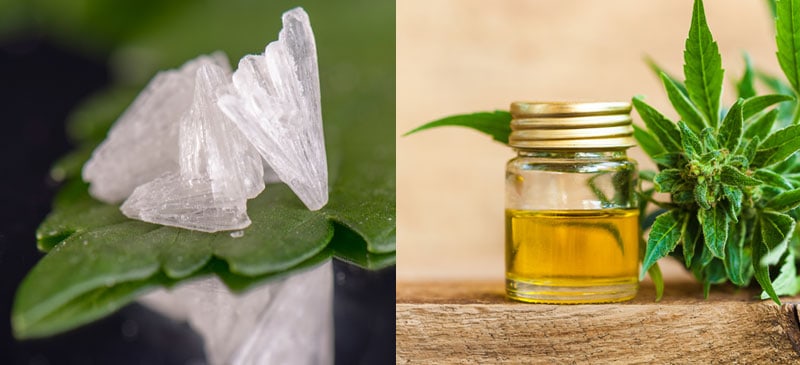This Dr. Axe content is medically reviewed or fact checked to ensure factually accurate information.
With strict editorial sourcing guidelines, we only link to academic research institutions, reputable media sites and, when research is available, medically peer-reviewed studies. Note that the numbers in parentheses (1, 2, etc.) are clickable links to these studies.
The information in our articles is NOT intended to replace a one-on-one relationship with a qualified health care professional and is not intended as medical advice.
This article is based on scientific evidence, written by experts and fact checked by our trained editorial staff. Note that the numbers in parentheses (1, 2, etc.) are clickable links to medically peer-reviewed studies.
Our team includes licensed nutritionists and dietitians, certified health education specialists, as well as certified strength and conditioning specialists, personal trainers and corrective exercise specialists. Our team aims to be not only thorough with its research, but also objective and unbiased.
The information in our articles is NOT intended to replace a one-on-one relationship with a qualified health care professional and is not intended as medical advice.
CBD Isolate vs. Full Spectrum CBD: Is One Better Than the Other?
March 24, 2019

This content is for informational and educational purposes only. It is not intended to provide medical advice or to take the place of medical advice or treatment from a personal physician. All viewers of this content are advised to consult their doctors or qualified health professionals regarding specific health questions. Neither Dr. Axe nor the publisher of this content takes responsibility for possible health consequences of any person or persons reading or following the information in this educational content. All viewers of this content, especially those taking prescription or over-the-counter medications, should consult their physicians before beginning any nutrition, supplement or lifestyle program.
As the CBD business continues to grow and more products hit the shelves, you may notice some confusing terms that come with plenty of questions. And one of the most common questions out there: What is the difference between full spectrum CBD oil and CBD isolate?
CBD isolates are touted as the purest, most concentrated form of the cannabinoid, allowing for the most CBD benefits. And some people are concerned about using a product that contains any amount of THC, so manufacturers choose to take the THC out of their solutions. But how do CBD isolates compare to full spectrum CBD products?
It’s true that THC, the most psychoactive agent in the cannabis plant species, has been stigmatized for its intoxicating effects. But this explains only half the story. When you look at CBD vs. THC, it’s clear that both compounds are powerful cannabinoids that can work well when used in combination.
So should hemp-derived CBD products be called “full spectrum CBD” or “whole hemp extract” when the THC is intentionally removed? The short answer is no. But knowing why is even more important.
What Is CBD Isolate?
CBD isolate means that the product contains only CBD (cannabidiol) and no other cannabis compounds. For isolates, purified CBD is extracted from the hemp plant and isolated from other naturally occurring cannabinoids.
During the extraction process, CBD, other cannabinoids, terpenes and flavonoids that are found within the plant are initially extracted. Then to create a CBD isolate, the solution is refined further, taking out other cannabinoids and plant parts, leaving only CBD.
You may also come across the term “broad spectrum,” which means that during the extraction process, CBD and other compounds found within the plant are preserved, but the THC is completely removed.
Some scientists previously believed that because CBD isolates were more potent and concentrated, and that they had greater potential. However, some studies have called that into question. (Of course, more research needs to be conducted on this topic and more.)
What Is Full Spectrum CBD Oil?
Full spectrum or whole plant CBD means that the product contains CBD and other cannabinoids that are found in the hemp or “marijuana” (a historically racist term often used in place of “cannabis”) plants. A full spectrum product also includes other parts of the plant, including terpenes (which influence the smell and flavor of the extract) and essential oils.
Along with CBD, a hemp-derived full spectrum CBD product will contain trace amounts of THC (tetrahydrocannabinol) and other cannabinoids, each with its unique properties. The “cannabis spectrum” refers to this balance of cannabinoid concentrations, which influence the cannabis product’s profile. When specific cannabinoids are isolated from hemp or cannabis, this is said to alter the “symphony” of the components that work together.
A full spectrum CBD product can only contain up to 0.3 percent THC. But do keep in mind that hemp farmers and manufacturers need to follow specific guidelines, so always look for CBD from a reputable company with a certificate of analysis (COA).
CBD Isolate vs. Full Spectrum CBD: Similarities and Differences
When it comes to CBD isolate and full spectrum oil similarities, there’s one simple example — both contain cannabidiol. There are also a number of ways that CBD can be extracted to make both CBD isolates and full spectrum products, with CO2 extraction being one of the best options.
Here’s a breakdown of the differences between CBD isolates and full spectrum CBD products:
CBD Isolates:
- Pure CBD
- No THC or other cannabinoids
- Typically doesn’t include plant compounds, such as terpenes
- Processed further than full spectrum CBD
- Delivers straight CBD
Full Spectrum CBD:
- Contains CBD and other naturally occurring plant compounds
- Contains less than 0.3 percent THC (when derived from hemp)
- Undergoes fewer processes than CBD isolate
- Works synergistically with THC and other plant compounds
Although CBD isolate is a more concentrated form of cannabidiol, this doesn’t mean that it has greater effects. In fact, while more research needs to be done, some research indicates that full spectrum CBD, which is a combination of cannabinoids, plant compounds and sometimes other herbs, has a complementary effect, known as “the entourage effect.”
CBD has the most documented benefits among other non-intoxicating cannabis compounds, but these other components can combine with CBD for a dynamic combination. Take THC, for example — it mimics the actions of anandamid, a naturally occurring endocannabinoid, and has been shown to have some positive benefits.
Some researchers indicate that there are strong benefits to the whole plant extract.
Although full spectrum CBD typically includes other cannabis compounds, the THC levels are still very low (less than 0.3 percent) when the product is derived from hemp.
In fact, some research indicates that when CBD and THC are used in combination, that’s where there can be favorable benefits.
Hemp-CBD Further Information
Here are more things to look for in CBD products:
- Extraction information: CBD isolate or full spectrum CBD
- Serving size: Some products indicate the amount of CBD in the entire bottle and others show how much CBD is in one serving
- Grown from organic or conventional hemp
- Certificate of analysis (COA) or third party tested
- Ingredient list: For full spectrum CBD, this will indicate what other plant compounds are present
- Amount of THC present: Some products indicate that the product is “THC free,” that there’s “No detectable (ND) THC” or that there’s “Trace amounts of THC”
Final Thoughts on CBD Isolate vs. Full-Spectrum
- With so many CBD oil products on the market today, you’ve probably seen different terms used to describe the type of solution that’s being used. The two most common terms are “CBD isolate” and “full spectrum CBD.”
- CBD isolate refers to a pure, concentrated form of CBD, with no other cannabinoids present.
- Full spectrum CBD refers to a solution that includes all of the naturally occurring plant compounds, including other cannabinoids (like THC), terpenes and essential oils.
- Although CBD isolates have been touted for their purity, some new research is showing that when CBD is used in combination with other plant compounds, including THC, they can have complementary effects.
Read Next: CBD Oil Dosage: What’s Best for Your Health Needs?

